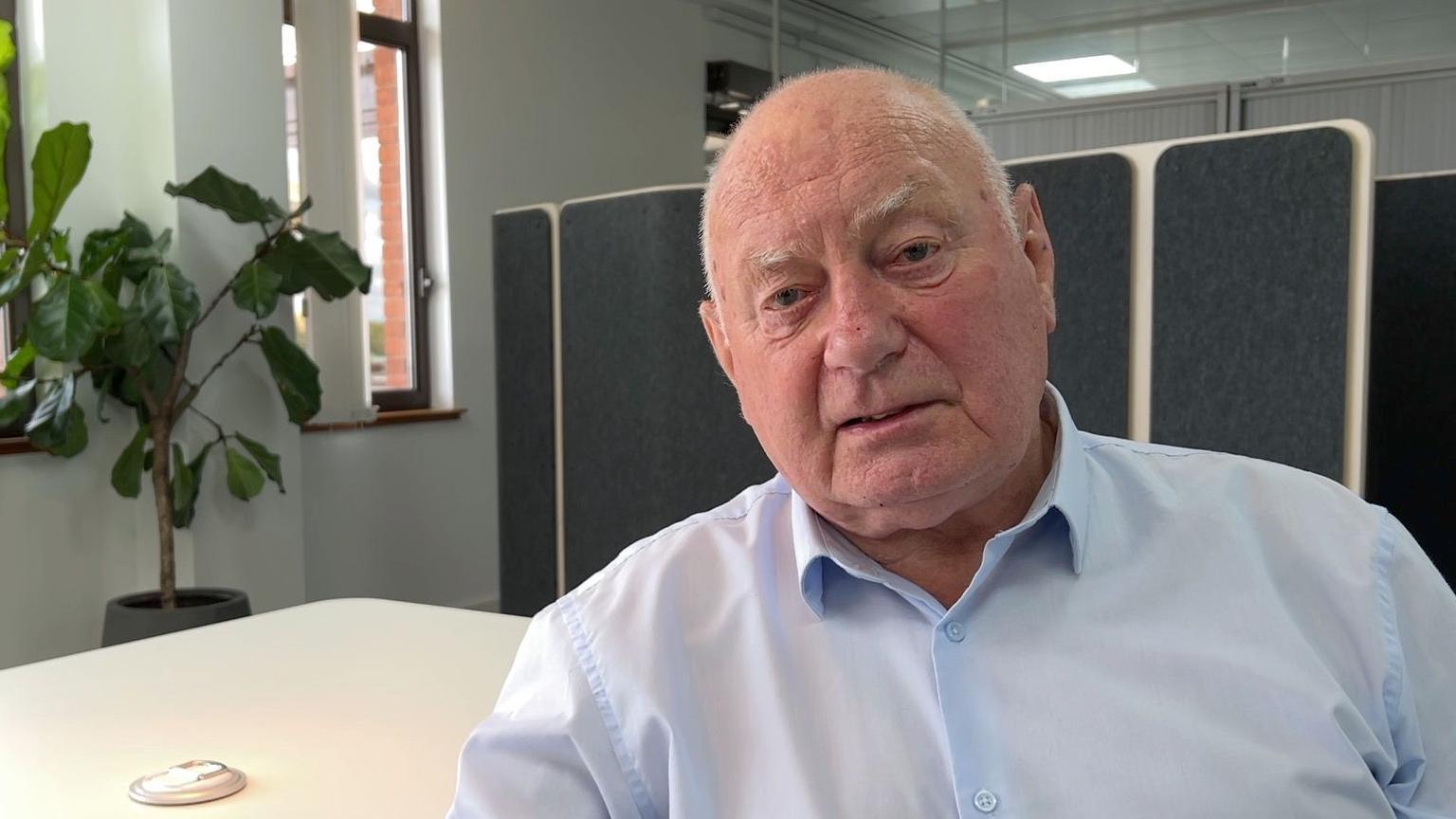£6m wine fraudsters must 'feel financial pain'
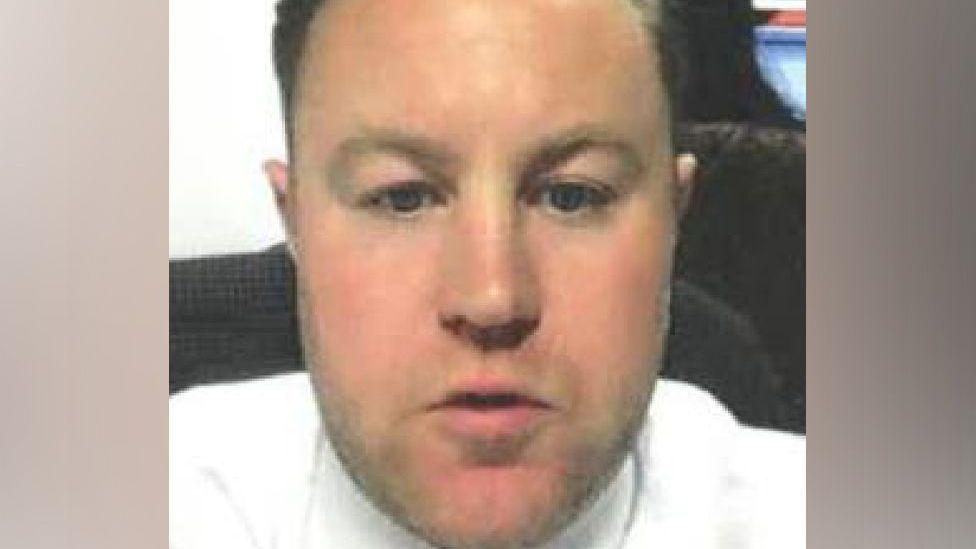
Benjamin Cazaly was described in court as the "captain of the ship"
- Published
The daughter of a man she says was targeted by wine investment fraudsters has urged investigators to "find every penny" scammed so victims can be compensated.
Three men from London were jailed in October after a trial heard they stole at least £6m from 41 victims in a fraud.
Benjamin Cazaly, Dominic D'Sa, and Gregory Assemakis, were found guilty of fraudulent trading, after an investigation by Hertfordshire County Council trading standards officers.
Catherine Salmon, 62, who lives near St Albans, described them as "despicable" and said a proceeds of crime case needed to be successful so they would "feel the financial pain they inflicted".
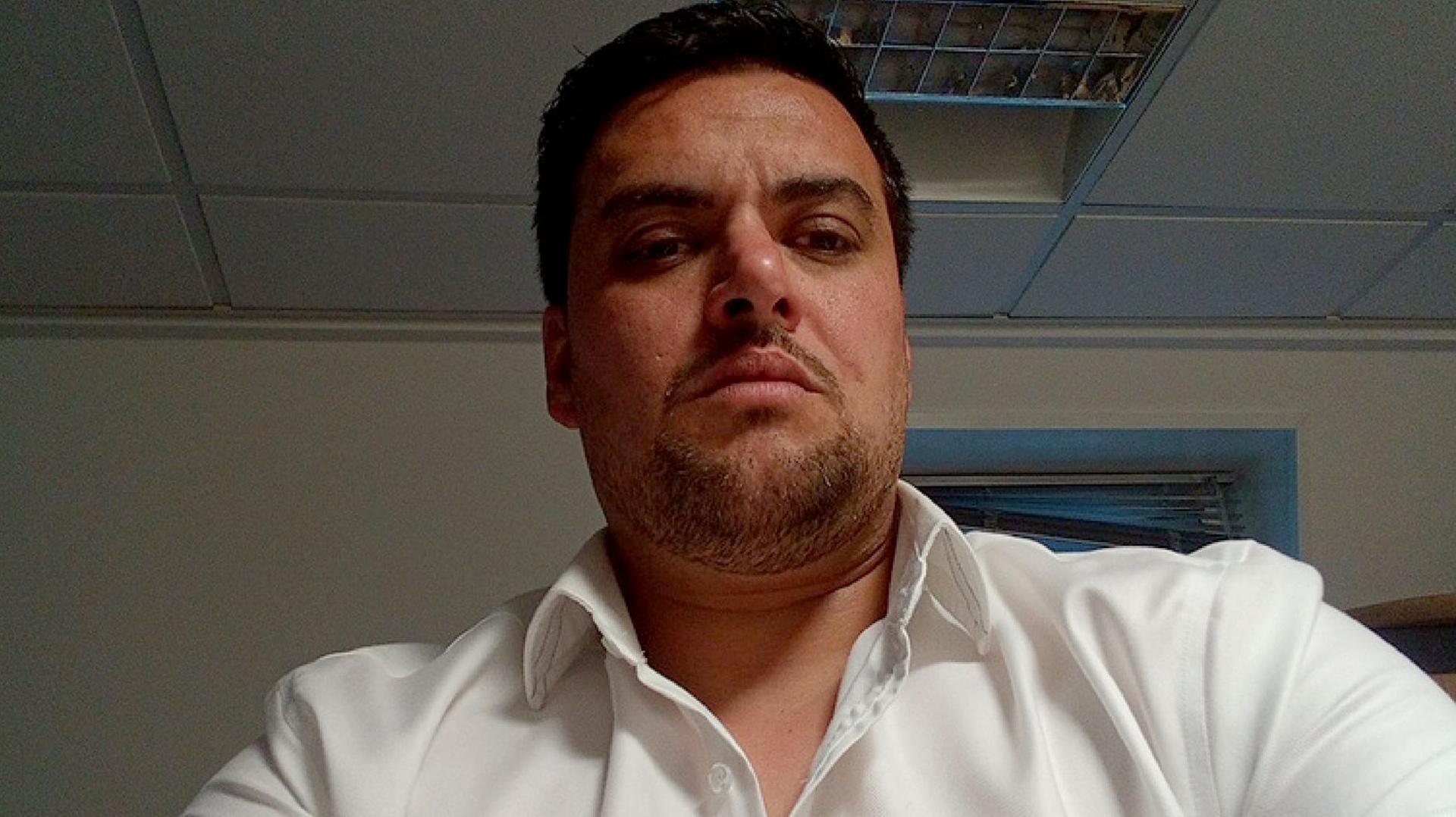
Dominic D'Sa was jailed for four and a half years
The jail sentences at St Albans Crown Court were:
Cazaly, 43, of Coach House, Orpington in south-east London, for six and a half years
Dominic D'Sa, 46, of Oxford Avenue, Wimbledon, south-west London, for four and a half years
Gregory Assemakis, 40, of Plaistow Grove, Bromley, south-east London, for three and a half years
Judge Jonathan Mann said some "small investors" had lost pensions, homes and, "in one case, his marriage".
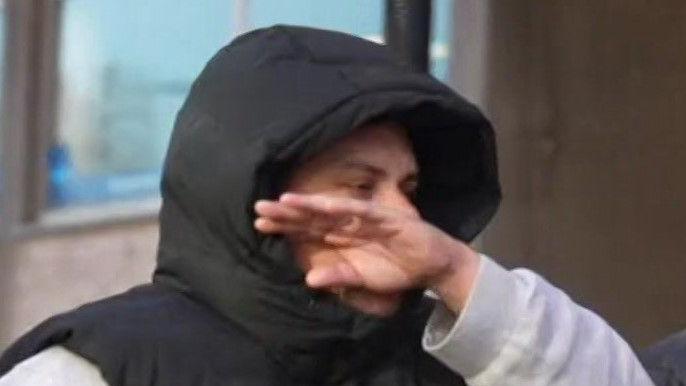
Dominic D'Sa arriving at St Albans Crown Court
Trading standards officers said the fraud was run by a company called Imperial Wine & Spirits Merchant Ltd.
After sentencing, council spokesman said that although the prosecution focused on 41 sample victims "the fraudsters conned hundreds of consumers out of their hard-earned cash and life savings by convincing them to invest in fine Bordeaux wine such as Chateau Mouton Rothschild, on the back of a lie that the company didn't make any money until they sold the wine at a profit for the customer".
"In fact, they marked the initial price up so high, sometimes over 400%, that for many investors, it would never increase in value over that price and some customers lost hundreds of thousands of pounds as a result," they said.
Trading standards said the company was founded by Cazaly in 2008 as Imperial Wines of London.
It claimed to be a family-run investment house with more offices in Paris and Hong Kong.
In reality, it was a call centre in an office building in Groveland Court in the City of London.
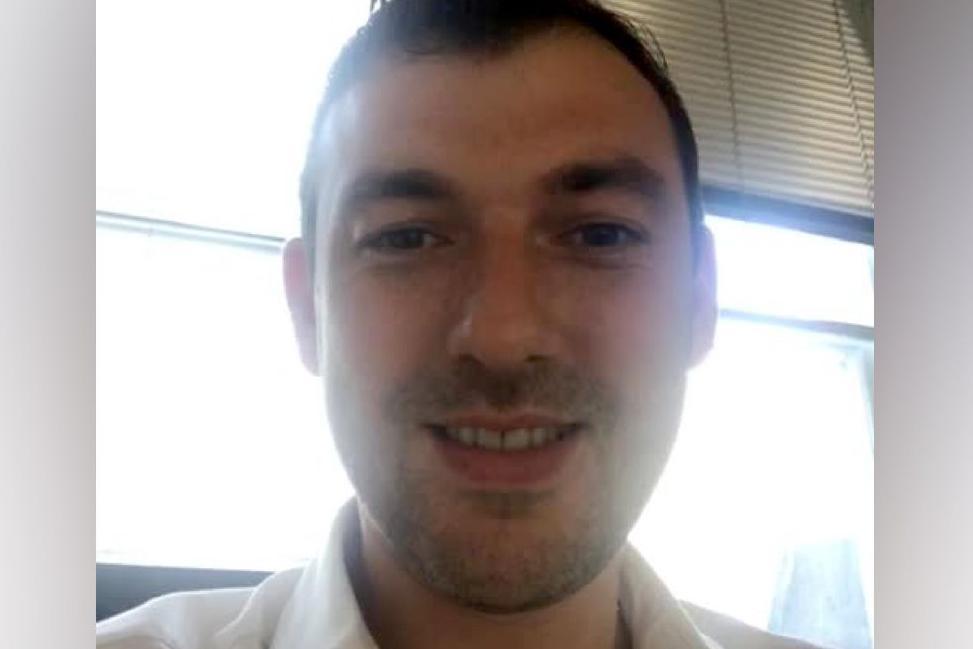
Gregory Assemakis was given a three-and-a-half-year jail term
Mrs Salmon has been speaking about how her father Richard Burden became a victim of the scam, although his case was not part of the trial.
Mr Burden, who lived in Offenham, Worcestershire, died in 2024 aged 87.
"They defrauded my father of £130,200 between 3 May and 2 November 2018 after staff at Imperial Wines befriended and cajoled him into investing by lying and manipulating him before finally abandoning him," she told the BBC.
"He was a vulnerable, elderly, lonely, bereaved widower. He trusted them. He didn't think for a moment that he was being scammed of a large chunk of his life-savings."
His daughter praised investigators as "brilliant", but said "their job isn't done".
"Trading Standards, and ideally the police, now need to conduct a thorough investigation into the assets belonging to these shameless criminals and seize them," she said.
"I didn't hear one word of remorse.
"It's not enough that they're in prison — they need to compensate their victims."
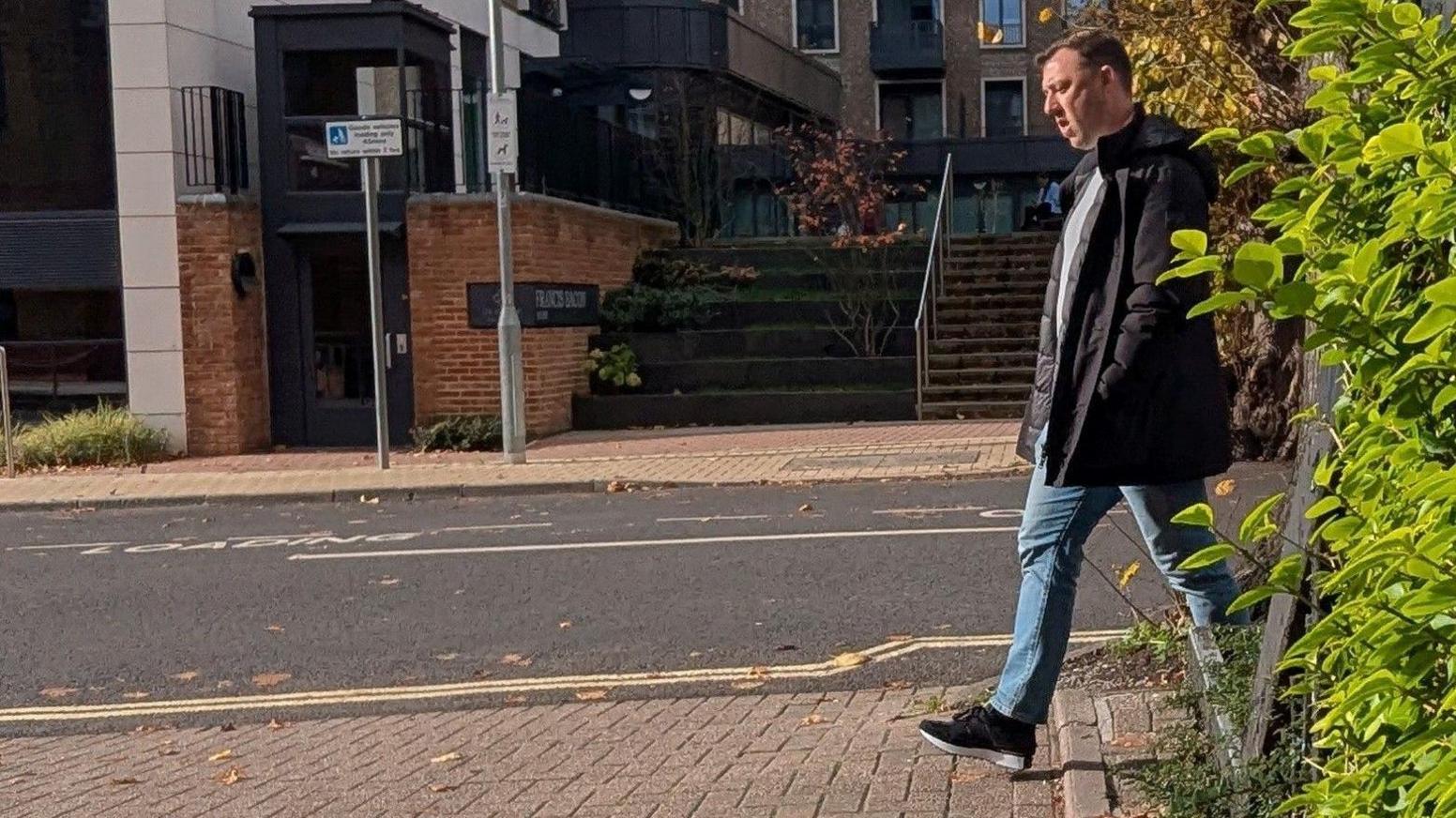
Gregory Assemakis walking towards St Albans Crown Court
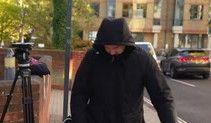
Gregory Assemakis arriving at St Albans Crown Court
Proceeds of crime cases allow the courts to order that the assets of convicted criminals, if they can be located, can be used to compensate victims.
Ajanta Hilton, executive member for community safety at Hertfordshire County Council, said the impact of the fraud on families had been "truly awful".
"Trading Standards are currently conducting a financial investigation into the individuals who have been convicted," she said.
During the criminal trial, Judge Mann said he would oversee trading standards officers' attempts to claw back money by locating and confiscating fraudsters' assets.
'Public interest'
Council trading standards officials released images of the three convicted men after a BBC journalist raised concerns with Judge Mann, arguing that it would be in the public interest.
The judge said he did not believe that he had a power to order the release of photographs to the media.
But he told the sentencing hearing: "It would help the victims to see the people involved being named and shamed.
"It is in the public interest."
Phone number and email verification service ClarityCheck recently said research showed that the "scam economy" was "thriving" because "people are simply too polite to hang up".
A spokeswoman said: "Our latest analysis shows how empathy and etiquette are being exploited as tools of manipulation."
BBC Scam Safe 2025 week runs until Friday.
Get in touch
Do you have a story suggestion for Beds, Herts & Bucks?
Follow Beds, Herts and Bucks news on BBC Sounds, Facebook, external, Instagram, external and X, external.
- Published8 August
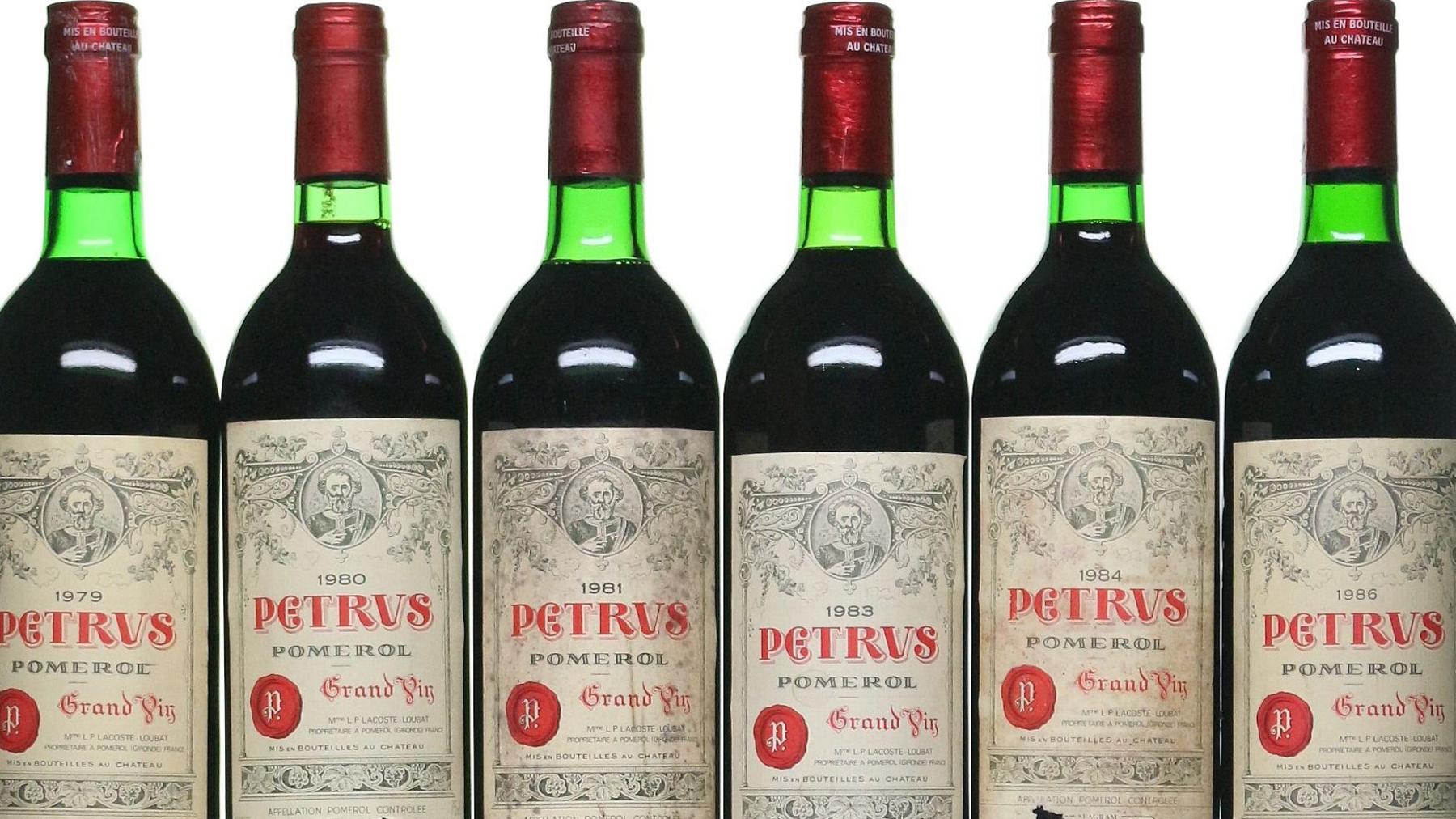
- Published25 October
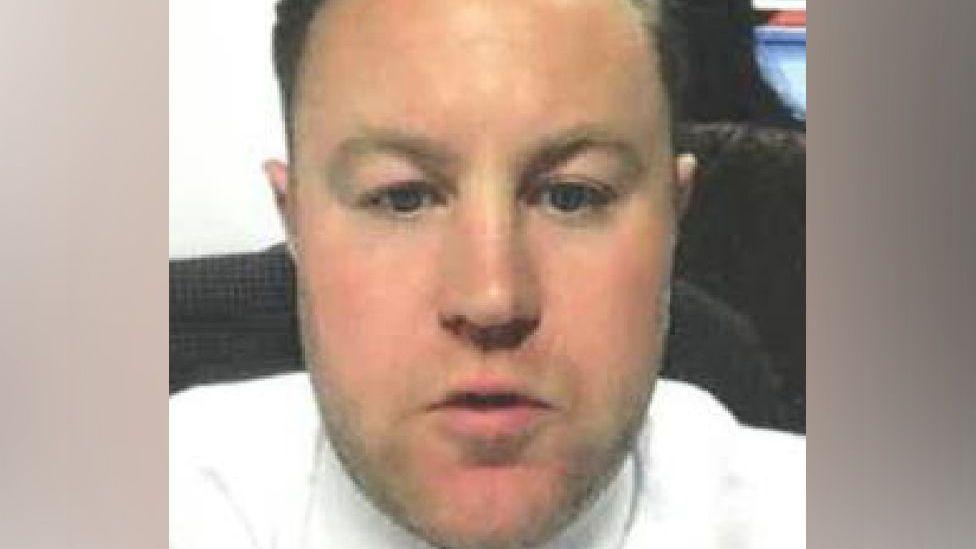
- Published26 October
